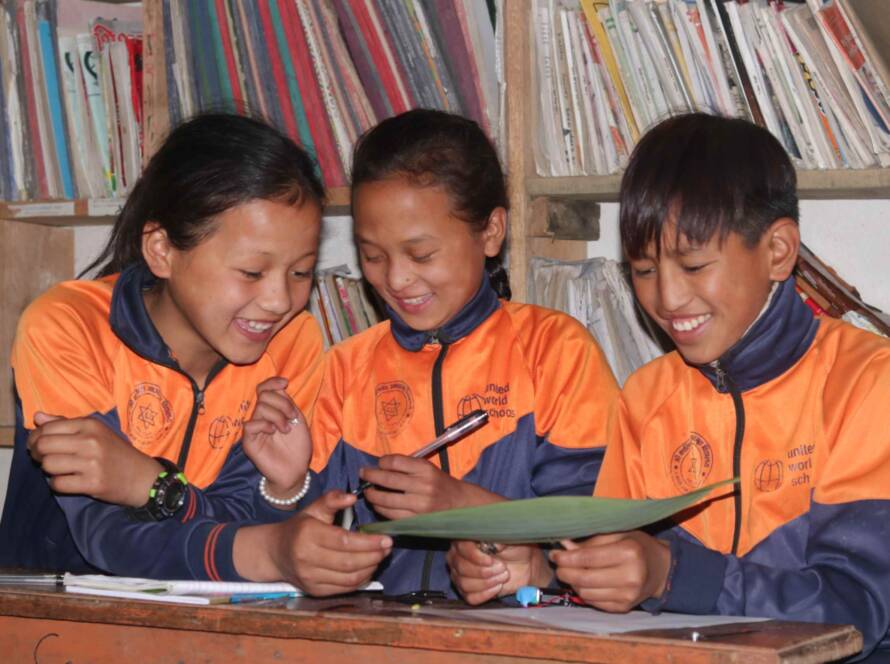According to UNICEF Nepal, 2016, 29 out of 100 students in Nepal who enroll in Grade 1 drop out before reaching Grade 8.
Dropout of students is one of the biggest challenges faced by the education sector in rural Nepal. There are various reasons for it, including long traveling distances from home to school, grade overage, extreme poverty, and discrimination, among others. To identify the students who are likely to drop out and to prevent dropout before it occurs, UWS Nepal has introduced the Dropout Prevention Program (DPP) in collaboration with Educate a Child (EAC) program.
One of the major reasons young girls over the age of ten drop out is the struggles they face during menstruation and puberty. To create a platform for girls to learn about their rights, and raise awareness about Menstrual Hygiene with the objective to prevent dropout of young girls students in UWS Schools, UWS Nepal has formed Girls’ Club in 38 of its schools in Sankhuwasabha, Gulmi, and Taplejung districts. The club aims to provide a safe space for girls to learn about their rights, voice concerns, build confidence and knowledge on their bodies and rights, and serve as support mechanisms for at-risk adolescent girls so that they will be able to continue their studies.
“After being involved in Girls’ Club, I have become fearless and have been able to put my opinion among others. I have also been able to talk about my issues related to menstrual hygiene and help others share their problems as well,” says Reena (name changed), a student of UWS Sathtare in Sankhuwasabha.
Menstrual Hygiene Management (MHM) is one of the primary responsibilities of the Girls’ Club. UWS Nepal, in collaboration with YUWA, provided MHM and Pad Making training to the education officers, school mobilizers, and fellow teachers. The training not only focused on raising awareness about menstrual hygiene but also trained the participants to make reusable menstrual pads.
The education officers, school mobilizers, and fellow teachers further facilitated the pad-making sessions for the Girls’ Clubs, Mothers’ Groups, teachers, and some other interested participants from the community in the schools in Sankhuwasabha, Gulmi and Taplejung districts. The sessions focused on raising awareness of Menstrual Hygiene Management and its importance, the use, benefits, and disposal of reusable pads, how to make them, and how to be aware and help educate society about menstruation.
“I was able to understand the negative perception regarding menstrual hygiene after becoming a member of the Girls’ Club. I also learned to make reusable sanitary pads through this club,” says Seema (name changed), a Girls’ Club member from UWS Changlewa in Sankhuwasabha. Till date, the Girls’ Club and Mothers’ Group of the 38 schools in Sankhuwasabha, Gulmi, and Taplejung have been benefitted through the sessions.
The pad-making training has received huge appreciation from the members of mothers’ groups, local communities, and the municipalities in Sankhuwasabha, Gulmi, and Taplejung. Because menstruation is still taboo in rural Nepal, the session has become a platform for women and girls in rural communities where UWS works to speak about their problems and share their experiences comfortably. “The pad-making training provided by UWS Nepal was very effective. I have been using the pad myself, which is better than the household pad I used to use. I learned more about menstrual hygiene and the importance of a balanced diet during menstruation. It would be great if this training could be provided to other mothers in the community with little or no knowledge about menstrual hygiene,” says Mala (name changed), a mothers’ group member at UWS Jaisithok.

